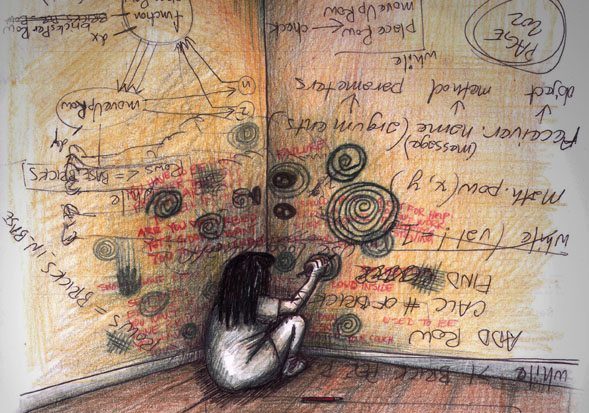
By Ernesto Saavedra
Oh, how time flies.
A year ago, I became editor of the Community Alliance. A chance to venture into new terrain and grow in an area I was not too familiar with. Somehow I have maintained and I am grateful for all of your support. Being in this position has given me a new perspective on people and the community. Observing and documenting different happenings and putting them out there for your consumption. I have read and written about many issues and perspectives, some I agree with, some I do not. However, at least in the year that I have been here, there seems to be an underlying theme to all of this: mental illness and coercion. Let me explain.
Recently, I came across an article by clinical psychologist Bruce E. Levine titled “The More Society Coerces Its People, The Greater the Chance of Mental Illness.” Levine writes:
Coercion is the use of physical, legal, chemical, psychological, financial, and other forces to gain compliance—is intrinsic to our society’s employment, schooling and parenting. However, coercion results in fear and resentment, which fuel miserable marriages, unhappy families, and what we call mental illness…In our society, we are taught that accepting institutional coercion is required for survival. We discover a variety of ways—including drugs and alcohol—to deny resentment. We spend much energy denying the lethal effects of coercion on relationships. And, unlike many indigenous cultures, we spend little energy creating a society with a minimal amount of coercion.
An example Levine gives in the article is the act of decision making. He notes that for members of the Iroquois Tribe, it is valuable to take as much time as necessary to reach consensus to not leave anyone feeling alienated or left out. Something that in Western standards and thoughts can be considered time consuming and inefficient. Voting, for example, can be considered a coercive act. Often, we are pressured to vote on things and for people we had no say in or about. If we don’t vote, we are told we can’t complain. Some even go as far as saying “Vote or Die” as rap mogul and personality P-Diddy did at one point.
Another example of coercion is our punitive criminal justice system. Like I’ve written in the past, the majority of those locked up in jails and prisons have some form of mental illness due to their environment. Instead of addressing the root cause of it, the system locks them up. Jails and prisons serve as de facto mental health institutions that, in turn, use that as a reason to ask for more money to fuel the prison industrial complex instead of restorative programs in our communities.
It is like what a friend of mine recently told me, “Prisons are an inverted representation of society.” We are told when to wake up, what to eat, when to eat, how to look, how to think, when and where to sleep—basically, how to live. This can be seen in our local political systems too.
A few months ago, a resident of Fresno approached the Community Alliance with a concern about Fresno City Council District 2 Member Steve Brandau. During a public meeting on Feb. 5, Brandau made some blatantly ignorant comments about the Americans with Disabilities Act (ADA), which is celebrating 25 years of “removing barriers and empowering people” including those with mental illness.
Brandau said:
This ADA law that we have is assaulting every city in this state and every state in this nation. It is one of the most heinous, intrusive, abusive laws that are operating in the United States of America…right now we have ADA attorneys that have come into the city of Fresno practically suing every business on Blackstone Avenue.
I contacted Shannon M. Mulhall, the certified Americans with Disabilities Act coordinator Council liaison to the Public Works Department for the City of Fresno, to get her take, and this is what she said:
The City of Fresno is committed to our ongoing efforts to support the Americans with Disabilities Act, enhance accessibility, and provide equal access to City-run programs, services, and activities for all citizens with disabilities. Whenever we become aware of questions or concerns regarding ADA compliance, we welcome the opportunity to provide clarity and promote awareness. We support both citizens with disabilities and local businesses and believe that greater education on ADA laws is key to creating an inclusive community.
I don’t know about you, but if representatives like Brandau view the ADA in that way, and no one called him out on it, it tells me mental illness, among other things, is the least of our government’s priorities. To get a further idea of where our government’s priorities are, of Fresno City’s fund expenditures for 2014 only 2 percent of the City’s $1 billion budget was spent on parks, which are a good way to build community, meaning healthier lives and happier people.
So, I say all that to say this, like Levine has pointed out, we live in a society that is heavy with coercion, or what he calls institutional coercion, that comes from the top and trickles down into our everyday lives and interactions with one another. Whatever issue is dear to your heart, it’s probably a result of coercive practices causing the often unseen and unrecognized mental illness we all try to deal with in some shape or form. We can’t fit inside these makeshift boxes and it’s time to break out.
